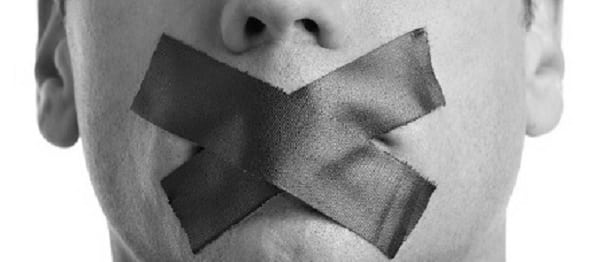Do I have the right to silence?

The right to silence after being cautioned by the Police is a fundamental right enjoyed in Australia. If the Police caution you in a recorded interview or in any situation, you do not have to answer any further questions that the police put to you.
What is the “right to silence”?
The right to silence is the right to remain silent – the right not to say anything, answer any questions or give any information. Even if the police ask you a direct question you have a right not to answer it, you are not obliged to say anything.
The police cannot presume that you are guilty or have done something wrong because you will not talk to them. The police need to prove you are guilty – you do not need to prove you are innocent.
Do I have to answer any questions from the police?
One of the few exceptions to the right to silence is a request for identification. The request for your identification should be treated differently to other police questions.
In many situations, police have the power to ask for your identification, your name and address and date of birth. In many circumstances refusing to identify yourself to the police is an offence.
If the police ask you for identification and are not sure whether to give them your details, you should get some advice from a lawyer or legal aid.
Should I talk to the police or not?
You should always get legal advice before you decide whether or not to answer police questions or participate in a record of interview.
Sometimes it may be in your interest to do an interview. A lawyer should be consulted to assess your situation before deciding the best way forward.
In some cases doing an interview will lead to you being charged and make it tough to defend these charges later in court. Sometimes doing an interview can make your legal position a lot worse or even impossible. For example, you may be unaware that the Police lack some crucial evidence against you, which you unknowingly admit to during questioning. For this reason, you should always talk to a lawyer and get advice before doing an interview.
If you can’t get in touch with a solicitor and the police want to question you, you should remain silent until you have a chance to get legal advice. You should inform the Police that you do not wish to take part in an interview until you have spoken to a lawyer.
How do I exercise my right to silence?
Police must caution you before asking you questions so that you are aware of your right to silence and so that you know what will happen if you don’t speak to them. The caution should sound something like this:-
“ You are not obliged to say or do anything unless you wish to do so. But it may harm your defence if you fail to mention when questioned something you later rely on in court. Anything you say or do may be given in evidence. Do you understand?”
If you do not want to answer questions you should tell the police that you do not wish to take part in an interview at all. It is not a good idea to sit through an interview and answer some questions and then refuse to answer others. Responding to an interview in this way can make your situation worse, not better. If you do not want to speak to the police or take part in an interview, just say, “I do not wish to take part in a recorded interview.”
They will document your refusal, and you will have exercised your right to silence.
PLEASE REFER TO OUR DISCLAIMER FOUND IN THE LINK AT THE BOTTOM OF THIS PAGE
